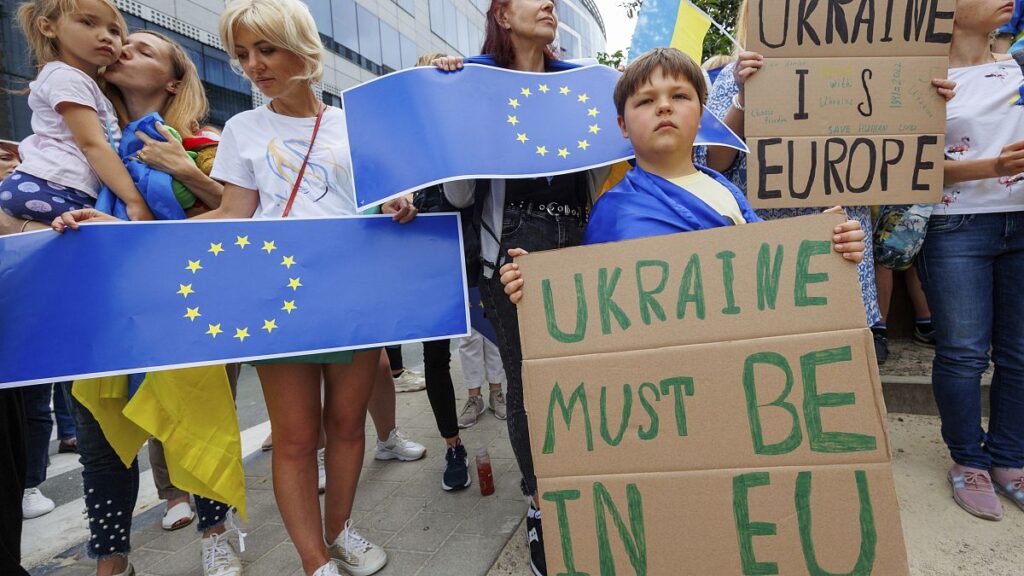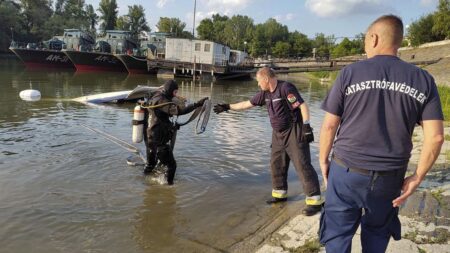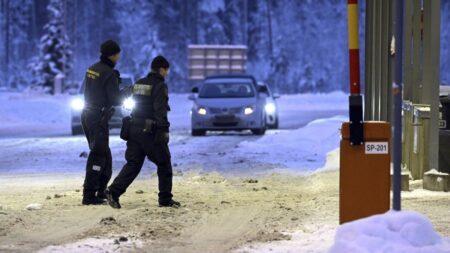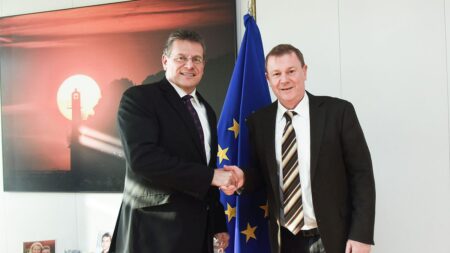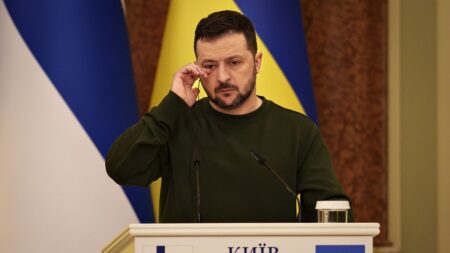Ukraine and Moldova could soon make some headway in their paths towards EU membership after the European Commission on Tuesday sent its draft frameworks for accession talks to member states.
The frameworks, which set out the principles and guidelines that will steer Brussels’ accession talks with both Kyiv and Chișinău, will require the unanimous endorsement of all 27 EU leaders.
If approved, it could see both countries edge closer to their ambition of fully-fledged EU membership.
“Ukraine has demonstrated remarkable resilience and commitment and has made substantial progress on its EU path,” the EU’s high representative for foreign policy, Josep Borrell, said in a statement.
“Despite facing hybrid attacks by Russia, Moldova has made further progress in its EU accession reforms and has shown impressive resilience. The presentation of the draft Negotiating Frameworks for Ukraine and Moldova is a step forward in the process,” he added.
The opening of both Ukraine and Moldova’s accession talks was approved by EU leaders during a summit in December, despite the firm opposition of Hungarian Prime Minister Viktor Orbán, who questions Ukraine’s preparedness to start negotiations.
Orbán has also denounced Kyiv for failing to uphold the rights of the Hungarian minority in the westernmost Ukrainian province of the Transcarpathian Oblast.
In December, leaders overcame Orbán’s opposition campaign by tactically asking him to leave the room in order for him to abstain during the vote.
But with the adoption of the frameworks yet again requiring unanimity, Orbán has another opportunity to single-handedly veto the start of talks.
Candidate countries must implement a raft of judicial and constitutional reforms in order to comply with EU laws and standards before they can proceed to the next step in the accession process.
The Commission said in November that both Ukraine and Moldova had completed over 90% of those requirements, and simply needed to tie the loose ends of their reforms before entering negotiations.
Among Ukraine’s pending reforms were measures to tackle corruption – including through new appointments to top anti-corruption offices -, curb the influence of oligarchs, and safeguard the rights of national minorities.
On Monday, the Ukrainian parliament, the Verkhovna Rada, gave its final approval on a lobbying bill that will tighten rules for government lobbyists and stamp out the influence of oligarchs, in line with Brussels’ requests.
War injects urgency into EU enlargement
Candidate countries’ accession, usually a painstakingly long procedure, has been fast-tracked since Russia launched its full-scale invasion of Ukraine, with the war on Europe’s eastern doorstep providing a new impetus for the EU’s enlargement.
Ukraine applied for EU membership on 28 February 2022, just months after Russia invaded its territory. Moldova followed suit just days later. Both countries were given candidate status just four months later.
The speed at which their applications have been advanced is unprecedented in the bloc’s history.
The accession bids of Western Balkan countries have also taken on renewed momentum, as the bloc recognises the geopolitical imperative of delivering on its promises to the region.
Bosnia and Herzegovina became the fifth Western Balkan country to get the Commission’s greenlight for accession talks earlier on Tuesday, joining Albania, Montenegro, North Macedonia and Serbia. Kosovo is currently considered a ‘potential candidate’ for EU membership.
But questions and uncertainty remain over the feasibility of Ukraine’s accession to the bloc while the war is ongoing.
Read the full article here


